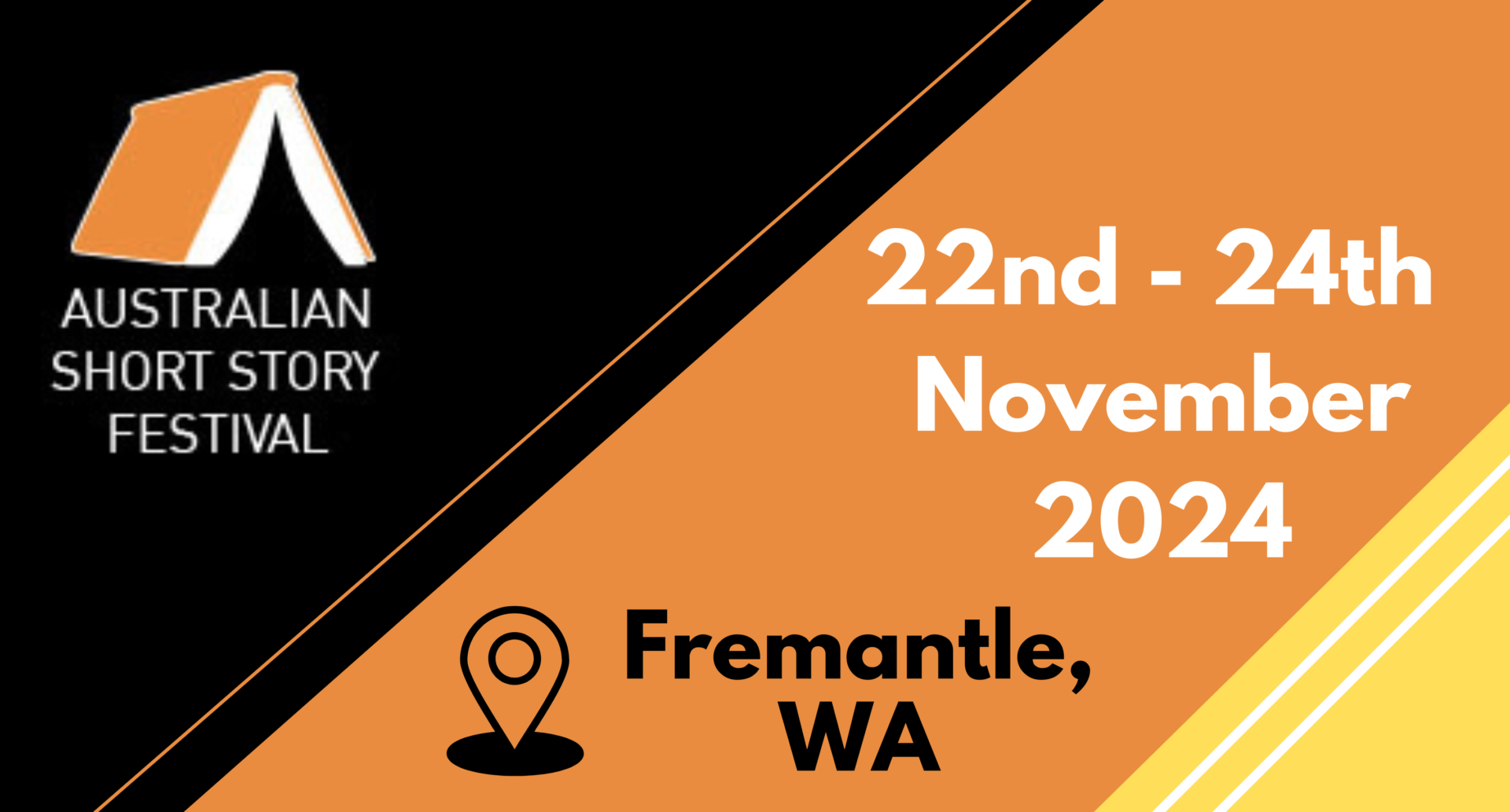ASSF 2019 Tickets
Ticket descriptions:
Full festival pass
Full price: $199
Concession: $99.50
The full festival pass includes unrestricted access to the festival’s panels and includes access to the Friday night opening event, Saturday night readings and Sunday night closing event. Please RSVP for catering purposes to: ausshortstoryfest19@swin.edu.au.
Saturday day pass
Full price: $119
Concession: $59.50
The day pass includes all panels and Saturday night readings.
Sunday day pass
Full price: $119
Concession: $59.50
The day pass includes all panels and Sunday night readings.
Opening night
Full price: $40
Concession: $20
Access to Friday night opening event at the Hawthorn Arts Centre, followed by complimentary finger food and drinks at bar prices at Beer DeLuxe.
Workshops
Full price: $50
Concession: $25
The Shape of the Short-Story
Facilitated by Barrie Sherwood
In this workshop, we’ll couple writing activities designed to get you looking at the world as the potential of fiction with a study of two kinds of short-story structure: five-part and epiphanic. The former has a long history with its roots in the tale and other early genres, and the latter is relatively modern. We’ll take our readings from writers of nations as disparate as Japan, United States, Sudan
Opening Paragraphs
Facilitated by Luke Johnson
If it’s poor form to judge a book by its cover, it’s even poorer form not to judge a short story by its opening paragraph. The opening paragraph is the stem cell from which the entire story must grow; in the bluntest terms, you either have a life on your hands, something worth nurturing and investing your time in, or you don’t. In this workshop, participants will be introduced to a range of strategies for writing effective opening paragraphs. They will be taught how to spot a quality opening paragraph and, by the workshop’s completion, will have at least half a dozen opening paragraphs that they can take away and grow into living, breathing short stories.
Essays
Facilitated by Maria Tumarkin
What, if anything, can short-story writers learn from the essay? I don’t know (have never written a short story in my life) but you might. In this workshop I will talk to you about what I love most about the essayistic sensibility (its intimacies and exhilarations, the freedom of movement, its disinclination to strain and persuade, its lurches into the unknown, the work of thinking in real time) and you’ll tell me what feels most interesting, when to speed up and when to slow down. We’ll make unexpected connections and there’ll be time for trying something new on the page.
Finding the gaps: Giving and Receiving feedback on short stories
Facilitated by Rebekah Clarkson
By virtue of their brevity, it is quick and easy to provide a writer with great feedback on a short story, right?
Wrong! (And we’ve all lived through a horror to know it.) But at some point in the writing process, we need and want to receive feedback on our short stories. The first half of this workshop will guide you through a range of reflections to help you better understand your own creative process as a short story writer, how to find appropriate feedback and how to hear it in a way that empowers you to serve the story you’ve written. When should we seek feedback? How? And from whom? Is a writing group a good idea? And what group model – if any – might suit us best? The second half of the workshop will provide strategies for giving astute and sensitive feedback on the stories of others and particularly, how to shed light on missed narrative opportunities peculiar to the short form – those elusive and wondrous ‘gaps’ that have the capacity to create whole worlds. This workshop is designed to be empowering, illuminating and skill-building: no scary feedback sessions here.
Behind closed doors: A workshop on microfiction and the domestic
Facilitated by Shady Cosgrove
A lot happens inside the house. Couples have sex for the first time. Birthdays are celebrated. Marriages break down over whose turn it is to wash the dishes. In this three-hour workshop, we will write the domestic and the not-so-everyday, using works by Lydia Davis as inspiration for our short-short stories. We will pay attention to ideas of craft – especially the telling detail, and how this can support plot, character and setting. Expect to write exciting and thoughtful short stories of 200 words or less and to share them in a supportive and engaged environment.
Notes
- As this is a ticketed event, we are unable to provide refunds if you are unable to attend.
- Concession information can be found here.
- For more accessibility information contact the Hawthorn Arts Centre.
- As parking is limited we would advise that you arrive early, or take advantage of Melbourne’s public transport. To reach the heart of Hawthorn and be close to all festival locations, take a Route 16 tram to stop 73, or take a train to Glenferrie Station.
